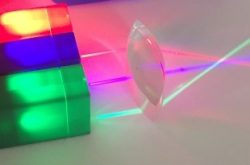The 31st of October is once again time to celebrate the dark aspects of our universe. While Halloween might be the first event that many might think of, it’s also the day in which we can celebrate dark matter. Dark Matter Day marks a recognition for the unknown and unseen parts of the universe, which is actually a lot greater than many might realize.
What is Dark Matter?
According to interactions.org, dark matter is a collective label for the “stuff” in the universe about which we don’t yet know much. This collective unknown is thought to account for up to 26.8% of the mass in our universe. It is currently unknown if dark matter is made up of undiscovered particles, or whether exploring the laws of our universe is further needed to unlock this mystery. The matter of which we do know, see, and study, only accounts for just 4.9%! This known matter includes planets, stars, and galaxies, as well as their respective matter within and among them. The rest of the universe is accounted for by dark energy, which is driving its expansion.
What is Dark Matter Day?
On the 31st of October in 2017, the world first celebrated the hunt for dark matter, and annual celebrations have since followed. Over 350 local and international events have been organized in recognition of the historic hunt for the unseen. If you are interested in finding an event, check out the Dark Matter Day event finder.
STEM for Dark Matter Day
Looking to introduce or reinforce STEM concepts with your school-aged children? Let Dark Matter Day be a springboard!
The interactions.org Educational Resources page is a great place to start. For example, they provide a simple classroom hands-on activity using everyday materials. This lesson will introduce them to the concepts of dark matter. Additionally, there is a long list of articles and resources that can provide further information on the subject.
 Dark matter does not emit, absorb, or reflect light. It does, however, bend light. Studying how dark matter behaves with light may be the key to understanding more about it. Check out these free lesson plans on light from TryEngineering such as An Eye On Optics and Infrared Investigations. If you are looking for an opportunity to explore matter and energy at the nano level, check out Be A Scanning Probe Microscope – a lesson plan where students gauge the surface of materials at the nano level.
Dark matter does not emit, absorb, or reflect light. It does, however, bend light. Studying how dark matter behaves with light may be the key to understanding more about it. Check out these free lesson plans on light from TryEngineering such as An Eye On Optics and Infrared Investigations. If you are looking for an opportunity to explore matter and energy at the nano level, check out Be A Scanning Probe Microscope – a lesson plan where students gauge the surface of materials at the nano level.



